|
By: Carol Whiteman, Vice-Chair BOHCC Board of Directors The month of June brings awareness to the vitally critical issue of elder abuse. June is Elder Abuse Awareness Month and World Elder Abuse Awareness Day is June 15th. We should take great concern in the care and treatment of our parents, grandparents, and other loved ones as they age through the final chapters of their lives.
There comes a point where the people that took care of us when we were young experience a role reversal and we take care of them at the end of their life span. I have personally lived through this with my own mother. I was not fortunate enough to be able to medically care for her in my home, I had to rely on the expertise and kindness of professionals in a skilled facility. Relying on others is the case for many of us that have had to witness the decline and loss of our parents. Nothing had prepared me for relying and trusting on the kindness of others for her care. I consider myself and my siblings very blessed that our mom was in great hands in the skilled nursing setting that she was in. Not everyone is blessed with an exceptional story though. There are countless examples of elders being abused in their own homes, and in facilities where they are placed. The elderly are taken advantage of too often. Scam artists and family members target the elderly for fraudulent requests for money and credit card information. Only 1 in 44 cases of financial abuse is reported, according to the National Adult Protective Services Association (NAPSA). Sometimes we hear of caregivers taking advantage of and being physically or sexually abusive to the elderly. 90% of abusers are family members or trusted others (NAPSA). There are even abuse situations that involve the elderly that are called into our crisis call line. We all have to do our share to make sure these things do not happen. If it does occur, report it immediately and seek the help of a victim advocate if a loved one is impacted by domestic violence or sexual assault. We have to take action to protect and care for the elderly. If we do not take action, who will? By: Jenna Krathwohl PTSD, or post-traumatic stress disorder, is a condition that affects many survivors of abuse. PTSD first became a mental health diagnosis in 1980, thanks to the influence of many social movements including feminist, veteran, and Holocaust advocacy groups [1]. Although PTSD is often associated with war, PTSD can be caused by any traumatic event, including sexual assault and domestic violence. In fact, according to the National Center for PTSD, about 7 or 8 of every 100 people will experience PTSD at some point in their lives [2]. Because PTSD is so common, it is important that we understand how PTSD can appear in victims. PTSD symptoms do not always occur right after the traumatic event. In fact, they can occur many months or even years after the event.
There are two main types of symptoms that occur with PTSD. The first is re-experiencing symptoms. These symptoms involve the victim experiencing the traumatic event again in some fashion. This can look like flashbacks, bad dreams, and frightening thoughts. Often, physical side effects, such as sweating, hives, and/or heart palpitations, can accompany these symptoms. The second type of symptom includes avoidance symptoms. A person may want to avoid a thing, place, event, or object that reminds them of the event. For example, if a certain song played while a victim was being abused, they may take extreme action to avoid hearing that song again. They may also avoid thoughts or feelings related to the event, such as talking about the event. Other PTSD symptoms include arousal and reactivity symptoms and cognition and mood symptoms. Arousal and reactivity symptoms include being easily startled, feeling tense or “on edge”, difficulty sleeping, and angry outbursts. Cognition and mood symptoms include trouble recalling the traumatic event, negative feelings towards oneself or the world, feelings of guilt or blame, and loss of interest in enjoyable activities. If you suspect that you or someone you know is experiencing PTSD, there is hope. There are many treatment options, including talk therapy and medications, that help survivors heal and live happy lives. Also, Beacon of Hope Crisis Center is here to help. We work with survivors to help them move towards healing. If you need support, take the first step, and call our confidential crisis line at (317) 731-6140 today. Sources: [1] https://www.ptsd.va.gov/understand/what/history_ptsd.asp [2] https://www.nimh.nih.gov/health/topics/post-traumatic-stress-disorder-ptsd We want to give a special shoutout to Futuro Indy, a local pizzeria that gave us a wonderful donation of over $1400. We were pleasantly surprised to receive this amazing news, and are incredibly thankful for this community support. Thank you to Futuro Indy and everyone that came out to show survivors they have allies. Donors really make all the difference in making sure the needs of survivor's are met. Their support means that the survivors we serve can continue to utilize our free services and life changing resources. Thanks again Futuro for your donation! #SupportSurvivors
By: Cheyenne Taylor Women across the world came together after the Italian Supreme Court overturned a rape case in 1992. This case revolved around an 18-year-old girl that was raped by her driving instructor. He was prosecuted and arrested for the crime but appealed his sentence, claiming that they had consensual sex. The Italian supreme court appealed his case, saying that the victim’s jeans were too tight for the rapist to have removed the jeans by himself. So, they argued that she would have had to help her rapist take her pants off, therefore making the act consensual.
Angered by this judgment, Italian women protested by wearing denim jeans and sitting on the steps of the Italian Supreme Court building. Images of these courageous women spread, and the news of the case shocked people across the globe. In 1999, the first American Denim Day was held in LA. Since then, each year, people worldwide wear denim to stand in solidarity with victims of sexual assault and speak out about the harmful effects of victim-blaming, which often results in more pain and suffering for sexual assault victims. Our agency encourages everyone who supports survivors of sexual assault to wear denim this year on #DenimDay in honor of all survivors. Help is Available:
#WeSupportSurvivors #WeServeAll #WeBelieveYou #SAAM By: Cheyenne Taylor Robert Ingersoll, an American lawyer and writer, once said, “We rise by lifting others.” Today, we want to discuss the ways we can help uplift survivors of sexual assault. We can start by changing the way society speaks about survivors. Common myths about sexual assault are harmful to survivors and can prevent them from getting the help and justice they deserve. These myths include beliefs that survivors “got what they deserved” or that they were “asking for it.” These thoughts are communicated through questions like, “What were they wearing,” “What were they doing,” or “Why did they drink so much?”
The truth is these types of questions focus on the wrong person. When a stabbing occurs, we never turn to the stabbing victim and question what they were wearing to make themselves more at risk of getting stabbed. We know that it is not our place to question survivors, and there is no justification for causing this harm. However, when speaking about sexual assault survivors, we assume they are lying – even though less than 2% of people are reported to have lied about sexual assault1. We also focus on questioning the survivors instead of questioning those who sexually assault people. Survivors are shamed so much that many do not report their perpetrators and many perpetrators go free. In fact, only 5 out of every 1,000 perpetrators will end up in prison2. Survivors feel so much shame for being sexually assaulted, but we can work together to take away those feelings of guilt. Instead of questioning survivors about their actions and what they did to “deserve” trauma that nobody deserves, we can show support to these survivors. We can offer support by using phrases like “It took a lot of courage to speak about this,” “It’s not your fault,” or “You are not alone. I am here to help.” We can also continue to check-in with them and give them the time to grieve and heal from their experiences. We should also validate their decisions. Listen to them without judgment and encourage them to make the best decision for themselves and their health. Additionally, we can suggest local resources to help the survivor. Beacon of Hope Crisis Center offers free services like protective order filing, safety planning, employment and financial assistance, emotional support, referrals for housing, jobs, and much more. Our victim advocates are here to support you. Speak with a victim advocate by calling our confidential crisis line at (317) 731-6140. If you are in immediate danger, please call 9-1-1. We recently received an emergency grant from The Allstate Foundation to help us continue to serve survivors of domestic violence during the pandemic. These funds have helped us to continue to provide our essential services to those dealing with often unfathomable trauma. Our grant was awarded as part of $500,000 in emergency grants provided by The Allstate Foundation to help more than 100 domestic violence organizations to provide necessary relief as the need for domestic violence services continues to rise.
Survivors may be isolated with abusers and cut off from social support systems. Check in with your friends and loved ones often through calls, email, or video chats. It is important to be there for one another and listen for warning signs of abuse. If you or someone you know is experiencing domestic violence or sexual assault, please consider calling to speak with an advocate. Victim advocates can offer information and guidance on next steps, call today (317) 731-6140. If you are in an emergency, please call 911. Red Flags of an Abuser:
Giving back to your community is always an amazing idea, but getting started can sometimes be tricky. We suggest supporting survivors. Beacon of Hope Crisis Center is a local nonprofit organization that serves ALL individuals facing domestic violence or sexual assault. Donations will directly benefit victims in central Indiana by providing services and resources such as safety, education, financial assistance, and counseling at no cost to our clients. Below are two ways you can become a donor and ally to survivors. We hope you consider joining us in the fight to end domestic violence and sexual assault.
AmazonSmile: AmazonSmile is a simple and automatic way for you to support your favorite charitable organization every time you shop, at no cost to you. When shopping with AmazonSmile you’ll find the exact same low prices, vast selection, and convenient shopping experience as Amazon. The added bonus is that Amazon will donate a portion of the purchase price to an organization of your choice. To support survivors receiving services at our agency, please choose Beacon of Hope Center for Women, Inc. / Beacon of Hope Crisis Center as your organization to support.
Kroger Community Rewards Kroger is committed to helping our communities grow and prosper. Kroger Community Rewards makes fund-raising easy! All you have to do is shop at Kroger and swipe your Plus Card! If you are looking for unique ways to donate to local organizations, enroll for your rewards to benefit and support Beacon of Hope Center for Women, Inc. / Beacon of Hope Crisis Center. Click here to enroll: www.kroger.com/account/enrollCommunityRewardsNow By: Katie Schneider Domestic violence and sexual assault can cause lifelong negative impacts on a victim’s mental and physical health. Victims that are in marginalized communities face more barriers to accessing services than those who do not. A marginalized community is a group of people who for whatever reason are denied involvement in mainstream economic, political, cultural and social activities. [1] They tend to be underserved when it comes to receiving services for domestic violence and sexual assault. People who are living with trauma from domestic violence and sexual assault within these communities may be scared to turn to those that can help them (community resources or law enforcement).
Beacon of Hope Crisis Center breaks down barriers by offering services to everyone that walks through our door or calls our crisis line. We work alongside community partners to provide language services, refer clients to free legal assistance, safe housing, and much more. Training our advocates to be culturally aware and helping to make survivors feel as comfortable as possible in times of healing. Beacon of Hope Crisis Center also provides services at no cost to any of our clients. Free and completely confidential. This way there is no economic barrier to receiving services either. Our Economic Sustainability Program aims to empower survivors to become self-sufficient and financially independent after experiencing abuse. Domestic violence and sexual assault alike do not discriminate against race, gender, sexual orientation, religion, citizenship status or any other demographic. It can happen to anyone. No one deserves to live in the grip of domestic violence or sexual assault. Abuse is never the victim’s fault. Beacon of Hope Crisis Center serves ALL individuals seeking assistance after domestic violence or sexual assault victimization. Call our confidential and toll free crisis line to speak with an advocate. Crisis Line: (317) 731-6140. [1] https://yali.state.gov/five-ways-to-be-an-ally-to-marginalized-groups/ -groups/ By: Cheyenne Taylor Why is it that when we make our mental to-do list each day, we never add taking care of ourselves to that list? Thinking about yourself is something that is often painted in a negative light with terms like self-absorbed and self-centered coming to mind, but what about self-care? We tend to hold ourselves to higher standards than others. We make ourselves the exception to the golden rule, “treat others how you would like to be treated.” When we should really treat ourselves how we treat others. Think of how much happier you would be if you put as much energy into yourself as you put into your job or your friends and family.
Taking care of yourself should not be a second thought or something that is planned last. In the long run, you benefit so much more when you take care of yourself. You will feel and look better, and your attitude will improve. As a result, your social and professional life will also improve because you will have added something to combat the daily stressors you come into contact with. Self-care does not have to be a hassle, but it should become a part of your daily routine like taking a shower or brushing your teeth.
By: Savannah Tipton We live in an age of technology where nearly every person over the age of 15 has a phone. Not only do we have phones, but we are on them constantly. We enjoy playing games, exploring social media, messaging friends and family, and so on. Many people relate to the daily behavior of checking their phone before going to bed at night and again when they wake up in the morning. Younger children also have access to utilize phones, iPads, tablets, etc. While technology can be a tool for learning and connections, it can also be abused. This constant connection to the outside world can create huge risks to someone’s safety and personal well-being.
Perpetrators of domestic violence and sexual assault often use technology to monitor someone’s online activity, harass, intimidate, threaten, or otherwise control a victim. Victim advocates are available to complete technology safety plans for survivors suffering from digital abuse or harassment. Digital abuse can be used to manipulate both domestic violence and sexual assault survivors. Types of abuse perpetrated through technology:
If you or someone you know is experiencing digital abuse, please contact our confidential crisis line. Advocates are a confidential source of support available to help survivors navigate these kind of situations and can connect you to community resources. Confidential Crisis Line: 317-731-6140 |
About this blog
This blog is about our domestic and sexual violence crisis center, Beacon of Hope. We hope you find it full of helpful information, motivation, creativity, serious facts and positivity. We hope that it will help you know what is happening in our center, in our community and with our events. We hope you follow our blog in support of our organization and our mission. Archives
October 2024
Categories
All
|
|
CAREER opportunities © 2024 Beacon of Hope Crisis Center Privacy Policy Accessibility Statement Training Portal Login |

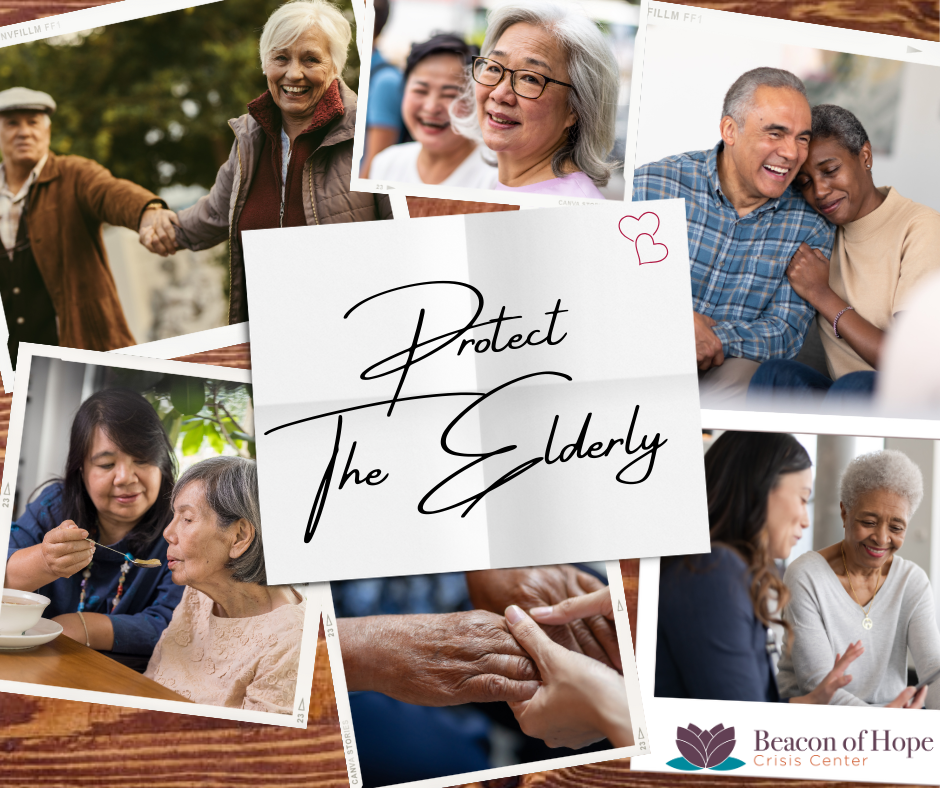
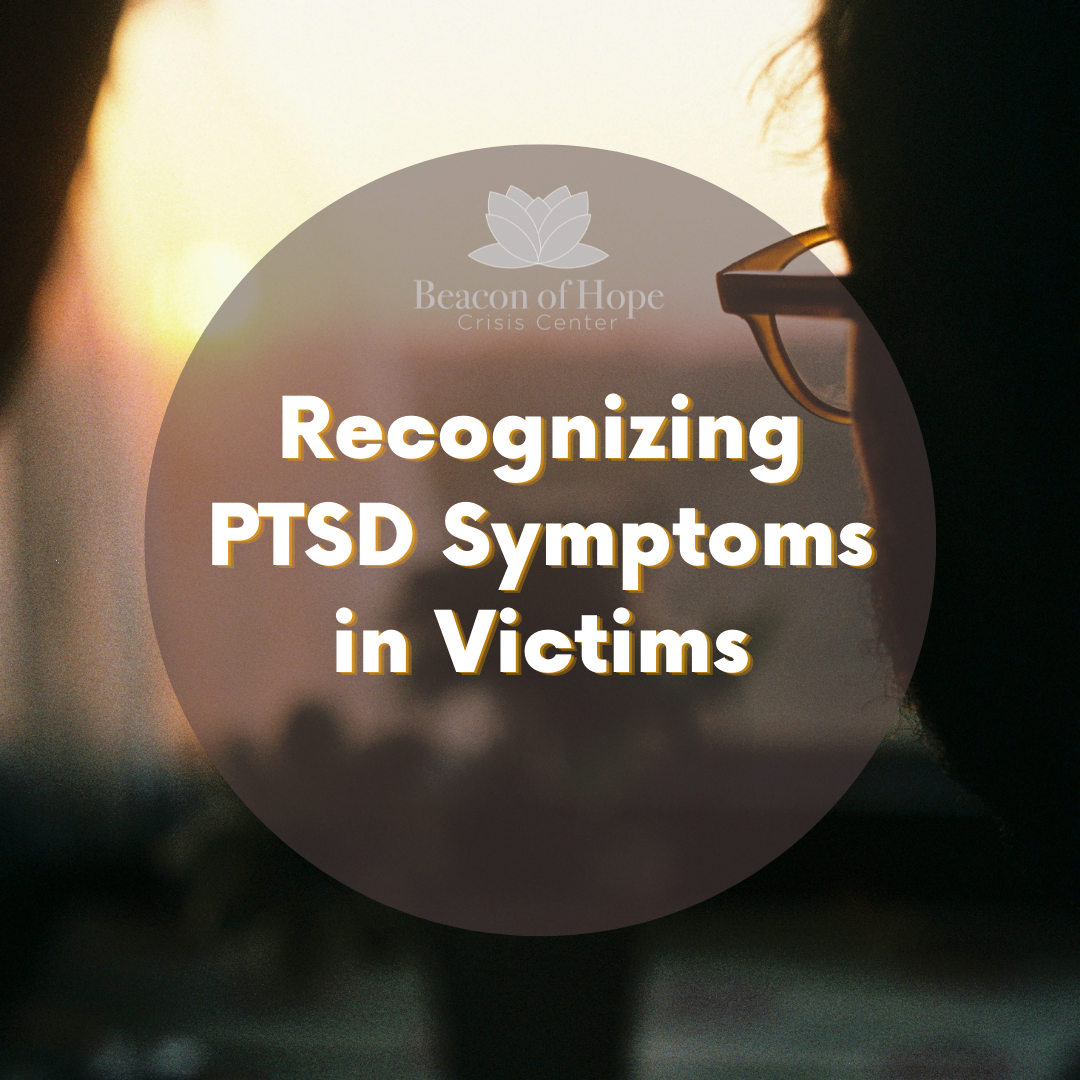

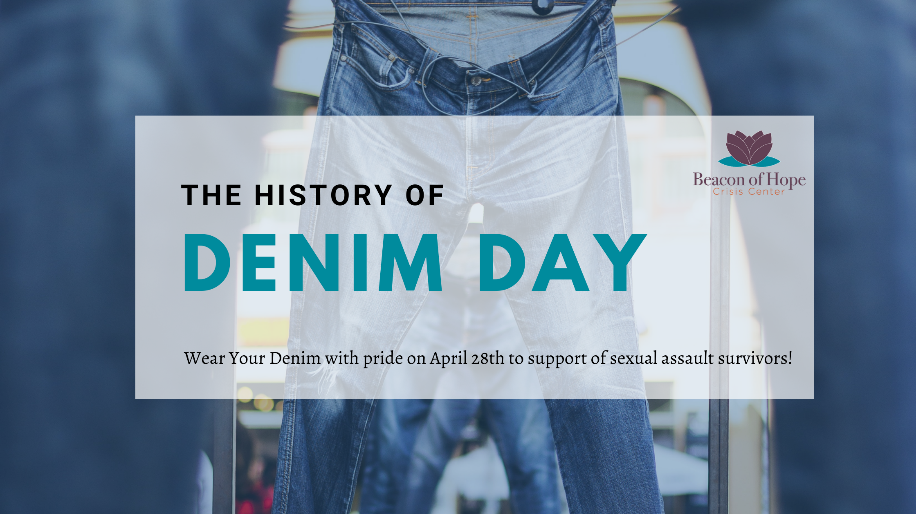



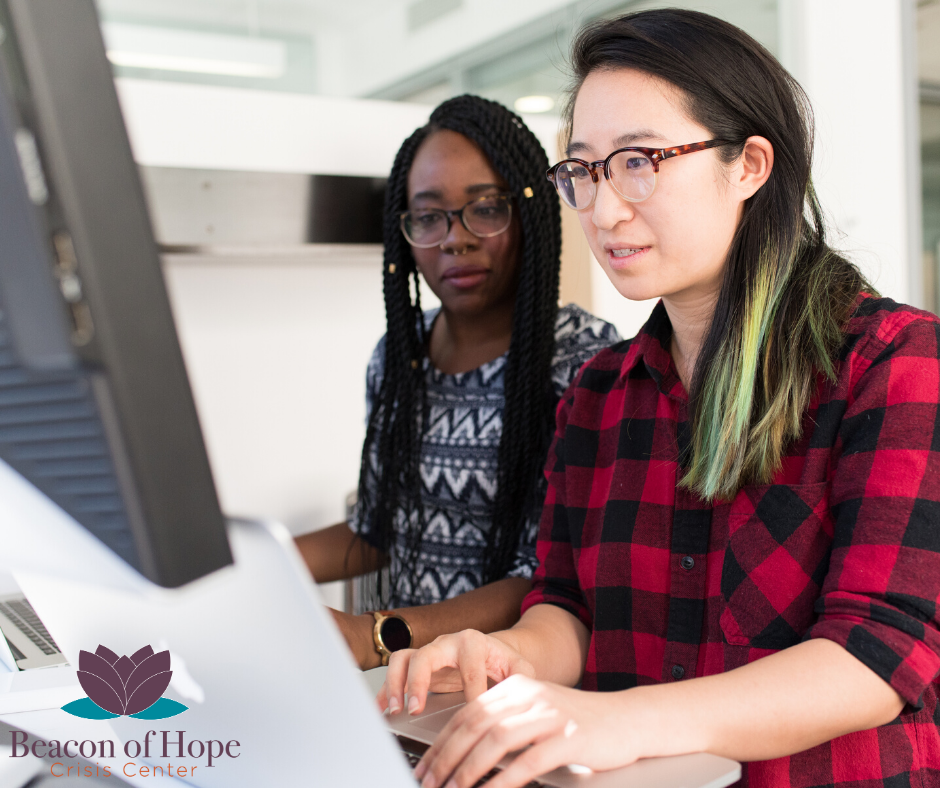
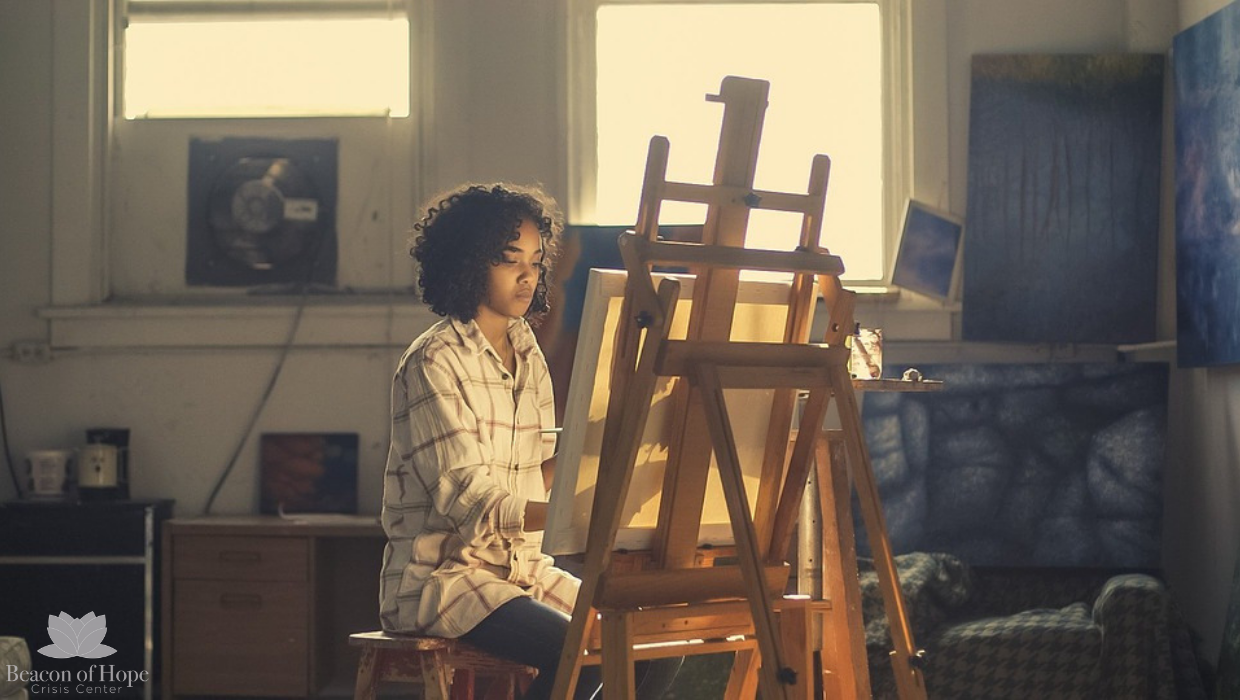
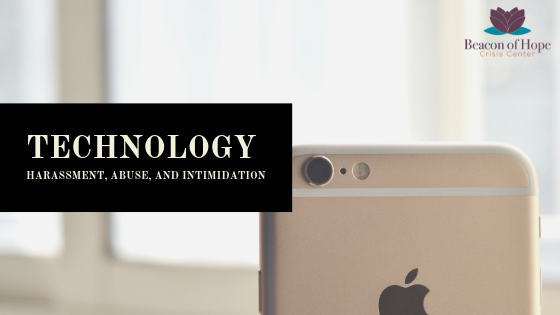
 RSS Feed
RSS Feed